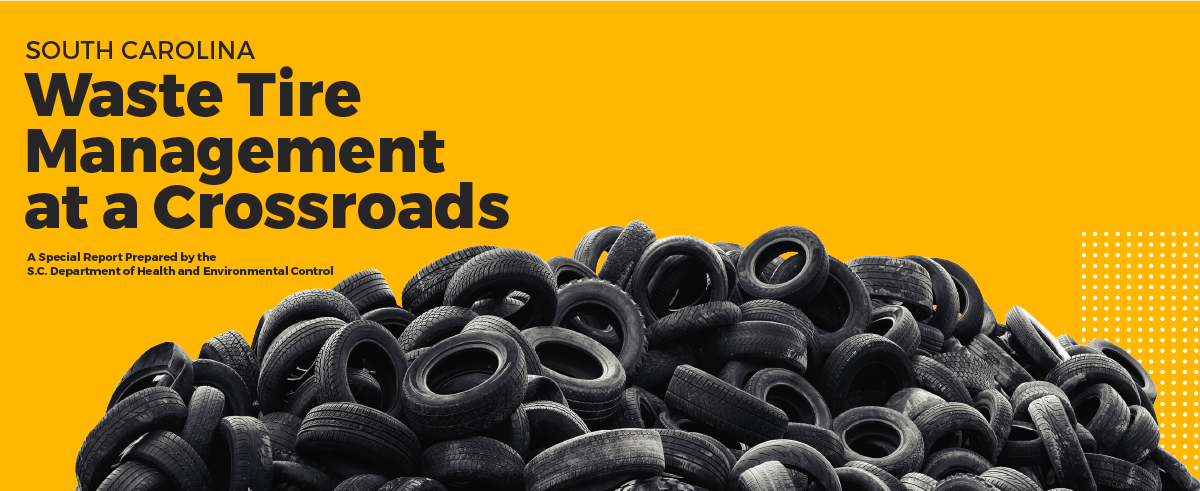S.C. Waste Tire Management at a Crossroads
South Carolina’s waste tire management program has been a success story from its beginning in fiscal year (FY) 1994 (July 1, 1993, to June 30, 1994) – with counties recovering nearly 110 million tires from the current generation and stockpiles of illegally dumped or stored tires across the state. The end-of-life management of waste tires was addressed with the passage of the S.C. Solid Waste Policy and Management Act (Act) of 1991 (Section 44-96-170).
Why the special attention? If improperly managed, waste tires (also known as scrap tires) pose a potential threat to human health, safety, and the environment. Nearly 30 years later, issues have emerged that threaten the program.
SC and Waste Tires
South Carolinians generate an estimated 5.1 million waste tires every year - about 14,000 per day. If improperly managed, waste tires (also known as scrap tires) pose a potential risk to human health and the environment. If recycled, waste tires can be made into many products or used as an alternative fuel source.
The S.C. Solid Waste Policy and Management Act of 1991 (Act) prompted the first efforts to manage waste tires in the state. The Act:
- Prohibits the disposal of whole tires in landfills;
- Places a $2 fee on the purchase of new tires to provide funding for the proper management and recycling of tires; and
- Requires county governments to manage waste tires generated within the county with collection and enforcement programs.
Stockpiles of illegally dumped or stored tires collect rainwater and provide a breeding ground for mosquitoes that transmit illnesses. These piles also are a fire hazard. Tire fires - which are extremely difficult to extinguish - release toxic air pollutants and generate oil that can contaminate the ground and surface water. SCDES along with PalmettoPride and the S.C. Department of Natural Resources developed a campaign to encourage residents to report any illegal dumping of tires in their communities. For more information, visit See It, Report It.


